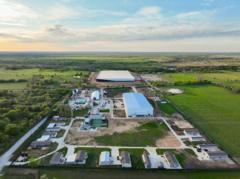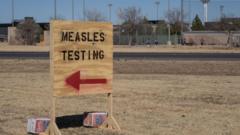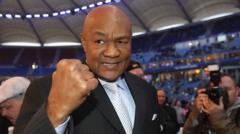As Russian Orthodox congregations expand across the U.S., young men are flocking to these churches seeking a sense of purpose and identity amidst societal norms they view as detrimental to masculinity. This trend is reflected in the increasing numbers of converts, many of whom are attracted to the faith’s emphasis on traditional values, male roles in family life, and a strong community.
Rising Interest in Russian Orthodoxy Among Young American Men

Rising Interest in Russian Orthodoxy Among Young American Men
Young men in the U.S. are increasingly joining Russian Orthodox churches, drawn by promises of exaggerated masculinity and traditional family values.
Father Moses McPherson, a priest of the Russian Orthodox Church Outside Russia (ROCOR), has seen his congregation nearly triple in just 18 months. In his online videos, the muscular father of five promotes what he calls an extreme form of masculinity, shunning practices he considers overly feminine, like wearing skinny jeans or eating soup. Formerly a roofer, Father Moses converted to Orthodoxy two decades ago, stating that growing interest in the church is reshaping perceptions of manhood among American youth.
During a recent Sunday service in his Georgetown, Texas church, it became evident that many of the attendees were young men in their twenties and thirties. Theodore, a software engineer and convert, expressed feelings of emptiness despite achieving career success, attributing his discontent to societal pressures regarding traditional masculine roles. Many converts are opting to home-school their children, believing it allows them to protect their family values.
ROCOR is a small but growing community, constituting about one percent of the U.S. population, which contrasts sharply with the vast numbers found in American megachurches. Since the mid-2000s, the demographic has shifted significantly toward a male majority. Some experts correlate this recent influx of male converts with the pandemic, which prompted many to seek deeper meaning in the face of global chaos.
Father Moses maintains that the essence of Orthodoxy is simply “normal,” in contrast to what he perceives as an overly feminized Western society. His congregation and others like it foster a religious environment many believe is safer for their children, particularly in distancing them from progressive discussions around gender identity, which they view as unwanted influences.
Although Orthodox Christians remain a small demographic, their growing visibility reflects wider ideological shifts, particularly resonating with conservative and anti-woke sentiments prevalent in American society today. This community has found a new zeal in expressing traditional values, and many of its members view their newfound faith as a refuge from modernity's complexities.
Father Moses has gained a strong online following, showcasing the appeal of his message that prioritizes family life and community. Many men, previously skeptical about faith, say they appreciate how the church aligns with long-standing familial and societal values.
As these trends unfold, a noticeable political aspect intertwines with religious conversion—particularly in light of favorable sentiments towards Russia within some segments of the American populace. Despite discourse surrounding Russia's geopolitical actions, some members of the faith view it as a bastion of conservative values, prompting deeper international connections among Orthodox Christians.
Ultimately, individuals like Buck Johnson, a firefighter turned podcaster, reflect a changing mindset among converts, who aim to cultivate deeper connections to tradition, family, and community through their Orthodoxy, signifying a pursuit of long-term values over fleeting gratifications.


















